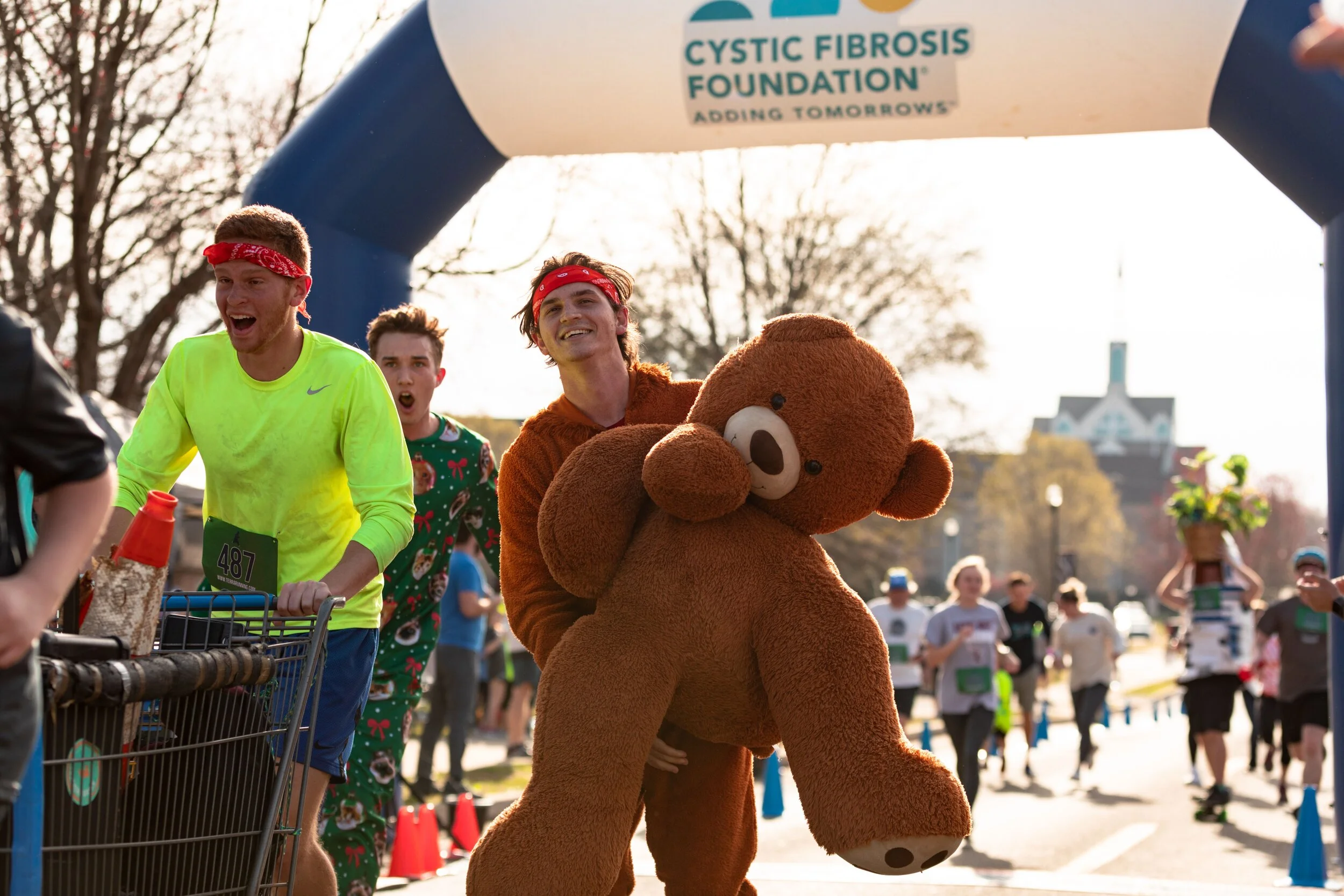Lee athletic trainers persevere, collaborate through difficult COVID-19 year
Lee’s athletic trainers treat a student-athlete in the athletic training room. Photos courtesy of Lee University Office of Public Relations
At Lee University, and all over the country, athletic trainers work hard every day to care for their athletes and coaches in many ways. More than taping ankles and handing out water, athletic trainers holistically care for the athlete by counseling, rehabilitating injuries, treating illnesses, referring to specialists, acting as the center of communication and collaboration for an athlete, and so much more.
“We [athletic trainers] are often the only line of communication between every facet of the athlete’s health,” said Breanne Crittenden, MAT, ATC, assistant to Dewayne Knight, MD, ATC, associate professor of athletic training (AT) at Lee and team physician.
According to Jeff Mullins, MA, ATC, Lee’s director of sports medicine and head athletic trainer, the versatility of athletic trainers has been highlighted more than normal this past year through the pandemic. “A good word to sum up who athletic trainers are is versatile,” said Mullins. “We have the knowledge and training to respond to such a variety of situations. Our ability to change on the fly is pretty unique to this profession, and the pandemic has shown that.”
In March 2020 many schools, including Lee, sent their students home after Spring Break and turned to Zoom to continue teaching and learning. This change was stressful for students and faculty alike, according to Mullins.
“Mentally, it has been challenging for everyone, especially athletic trainers, as we try to keep up with everything and remain optimistic for the athletes while continuing to encourage them to keep up with all of their responsibilities.”
Dr. Dewayne Knight, holding his Jerry Robertson Educator of the Year Award, is pictured here with the Lee University athletic training team (from left to right) Breanne Crittenden, Dan Heinbaugh, Jeff Mullins, Knight, Maddie Kalke, Shelby Landlot, Assistant Professor of Athletic Training Dr. Racheal Lawler, and Gabby Mammano.
Knight explains that there was already a concern for college students’ mental health prior to the pandemic. “On a national level, we had been forewarned in the fall of 2019 about an increase in mental health crisis among students and student-athletes.”
Lee’s athletic trainers cared for the athletes’ mental health by personally calling the athletes over the summer and collaborating with Lee’s counseling center through weekly in-services in fall 2020 to better equip both the coaches and athletic trainers to support their athletes.
Though it was difficult to keep up with the moving parts, many departments at Lee collaborated during this time to successfully serve the students.
“A lot of trust has been built between the athletic trainers and the athletic administration,” said Crittenden. “We depended on them, and they depended on us, to get the information out, and I believe this collaboration is here to stay.”
Not only did the athletic trainers treat the athletes and implement COVID protocols this past year, but they also allowed Lee’s masters’ AT students to shadow their everyday job.
“We made sure that the vast majority of our AT students were on campus this semester,” said Taz Kicklighter, Ph.D., ATC, LAT, director of Lee’s athletic training education program. “So, not only are they [athletic trainers] doing their everyday job, but they’re also supervising and teaching AT students.”
“These students have gotten an early snapshot of the variety of things that might have taken years of practice to develop through a traditional AT program,” said Knight, who was recently awarded the Jerry Robertson Educator Award, given to an individual whose dedication and service to athletic trainers and/or athletic training students exemplifies their desire to learn and/or teach the profession of athletic training.
The National Athletic Trainer’s Association (NATA) celebrated March as National Athletic Training Month with the 2021 slogan being “Essential to Health Care,” and the athletic training profession has proved to be essential, according to Kicklighter.
“As difficult as it has been, and it has been very difficult, the pandemic has highlighted the athletic trainer’s ability to step up as a health care professional and medical professional when and where needed in such a variety of ways,” said Kicklighter. “People are seeing how truly essential athletic trainers are, not just at taking care of an athlete, but as a part of the broad healthcare landscape.”
At Lee, faith integration is an important part of every aspect of life and education. According to Kicklighter, this freedom and encouragement to talk about God helped the AT staff persevere while doing their job to its greatest extent. “I like to approach our AT program from the standpoint of teaching the ministry of athletic training. Athletic trainers have always been able to be a light in the darkness for athletes who are injured and get part of their identity taken away. They are no longer a soccer player, but they are an injured soccer player who can’t participate in their sport. We can encourage them that their identity is in Christ, and I think this helps the healing process tremendously.”
According to Mullins, a humble servant attitude is a must for athletic trainers. “It’s not about the goals we have, but it’s about helping the athletes reach their goals.”
The Lee University AT team includes assistant athletic trainers Dan Heinbaugh, MS, ATC; Maddie Kalke, MS, ATC; Shelby Landolt, MED, ATC; and graduate assistant athletic trainer Gabby Mammano, ATC.
“Every member of our team really went above and beyond this past year,” said Kicklighter. “There have been athletic trainers and students covering sports they’ve never covered before, but the collegiality and the willingness to help in any possible way has been really cool to see.”
For more information about Lee’s athletic training program, visit https://www.leeuniversity.edu/academics/education/atep/.



